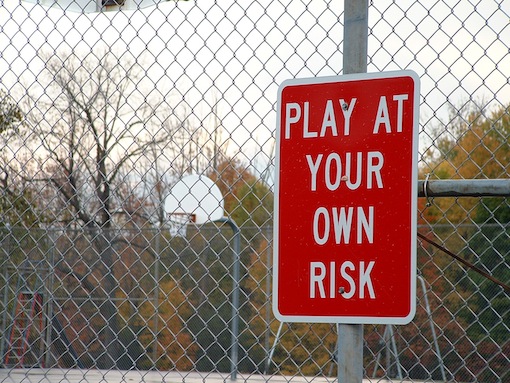It’s not just our students who demonstrate risky behavior. We see it with the volunteers and leaders in our youth ministries as well sometimes.
They’ll post a pic on Facebook that goes a little too far, send a tweet that’s a little too flirty, spend a little too much time with a particularly attractive student or drink a little bit to much at a social gathering. Risky behavior. What do you do as a youth leader if you witness this in your youth ministry team?
If you are anything like me, addressing these kind of issues with your team members doesn’t come easy. There are many reasons we tell ourselves to not talk about it, to try and ignore it, or to wait.
It’s not so bad, I’m just being over sensitive.
She would never do anything really wrong, she’s just being playful.
It’s just a small error in judgment, that’s all.
It would be really awkward if I had to tell him to stop doing this.
He’s the pastor’s son, I can’t call him on this.
She’s going through a rough time, I need to cut her some slack.
He’s a godly man, I’m sure God will convince him if he’s doing anything wrong.
It would communicate real distrust if I would bring this up.
And the list goes on…sounds familiar? It is really tough to address risky behavior we witness in our team, but it’s a necessity nonetheless. Sure, if it’s really a one-time slip, you can let it go. We all make mistakes and there should be room for failure. But is it really a one-time deal? Or is there a pattern forming?

We can tell ourselves a million times that it’s not that bad, but in my opinion if it’s worth worrying about, it really is that bad. You don’t need to judge, you don’t need to make it bigger than it is, but if you are uneasy about a team member’s behavior, you need to take action.
There are several reasons for addressing risky behavior in your youth ministry team:
You need to protect your students
If one of your volunteers is crossing the line of respectable or even appropriate behavior, you need to protect your students above all else. They don’t need another bad example and they certainly don’t need to become involved in this risky behavior with all possible damaging consequences.
You need to protect your youth ministry
Risky behavior often comes at a price for your youth ministry. It may not do so much damage at first, but when left unaddressed it can have a big impact. If you allow one person to get away with breaking your code of conduct, how can you address other issues in the future? What message is the acceptance of this risky behavior sending to your students, their parents and other youth leaders? I know for instance of youth leaders who quit because they could not in good conscience represent a youth ministry that tolerated certain risky behavior.
You need to protect your volunteer or leader
If you are sure that your volunteer or leader is showing signs of a pattern of risky behavior, you owe it to them to address it. You need to protect them from themselves. It’s not a guarantee that they’ll listen, take you seriously or actually change your behavior, but you need to try. When left unaddressed, these issues can quickly grown into far more dangerous behavior with possible lasting consequences on the live of the person involved and those around him or her. Do not underestimate what you see happening. Every scandal we read about in the newspaper starts with ‘small’ risky behavior. Help break the pattern before it’s too late.
Do you find it hard to address risky behavior in your youth ministry team? How do you go about it?
Leave A Comment